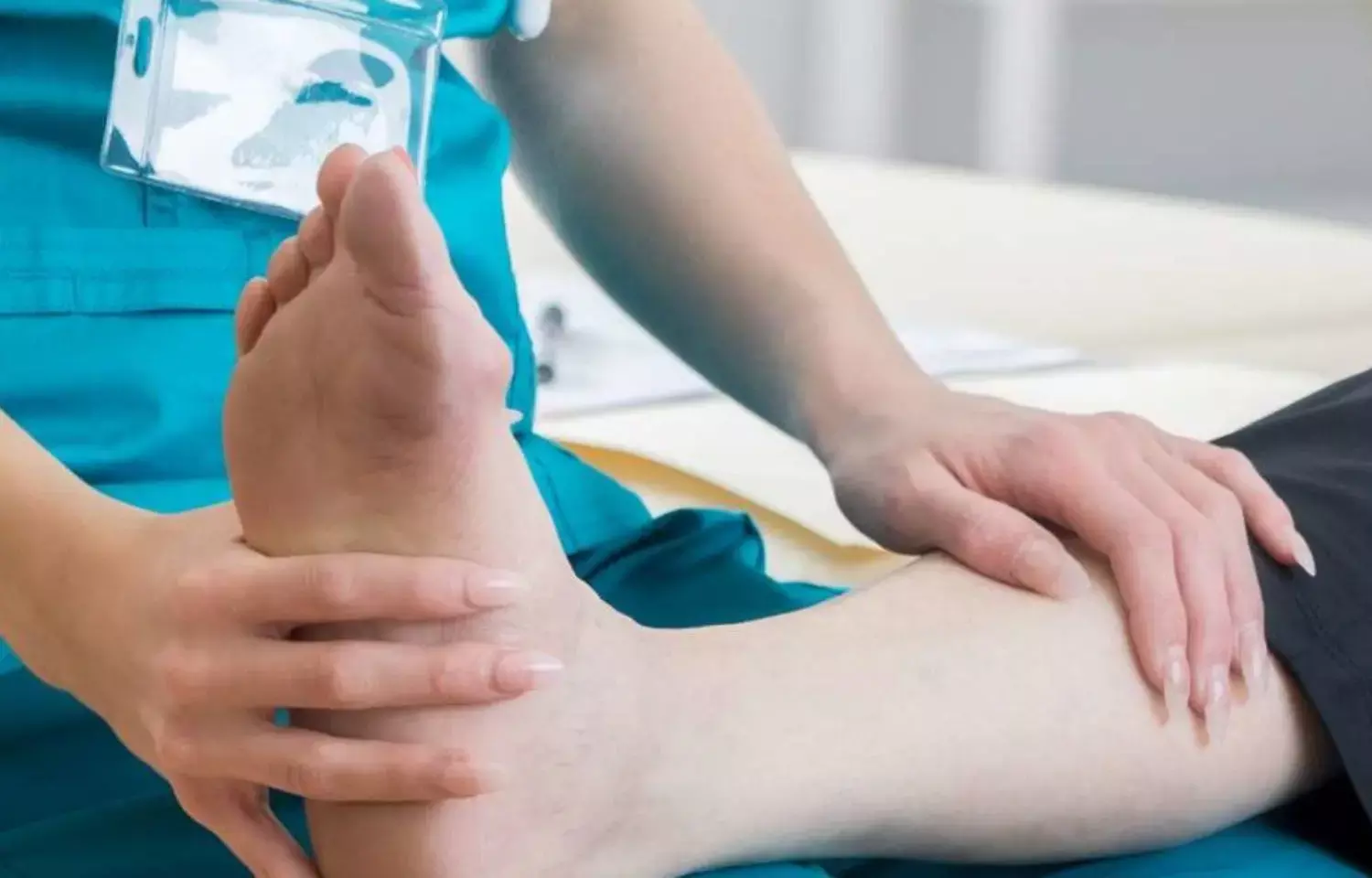- Home
- Medical news & Guidelines
- Anesthesiology
- Cardiology and CTVS
- Critical Care
- Dentistry
- Dermatology
- Diabetes and Endocrinology
- ENT
- Gastroenterology
- Medicine
- Nephrology
- Neurology
- Obstretics-Gynaecology
- Oncology
- Ophthalmology
- Orthopaedics
- Pediatrics-Neonatology
- Psychiatry
- Pulmonology
- Radiology
- Surgery
- Urology
- Laboratory Medicine
- Diet
- Nursing
- Paramedical
- Physiotherapy
- Health news
- Fact Check
- Bone Health Fact Check
- Brain Health Fact Check
- Cancer Related Fact Check
- Child Care Fact Check
- Dental and oral health fact check
- Diabetes and metabolic health fact check
- Diet and Nutrition Fact Check
- Eye and ENT Care Fact Check
- Fitness fact check
- Gut health fact check
- Heart health fact check
- Kidney health fact check
- Medical education fact check
- Men's health fact check
- Respiratory fact check
- Skin and hair care fact check
- Vaccine and Immunization fact check
- Women's health fact check
- AYUSH
- State News
- Andaman and Nicobar Islands
- Andhra Pradesh
- Arunachal Pradesh
- Assam
- Bihar
- Chandigarh
- Chattisgarh
- Dadra and Nagar Haveli
- Daman and Diu
- Delhi
- Goa
- Gujarat
- Haryana
- Himachal Pradesh
- Jammu & Kashmir
- Jharkhand
- Karnataka
- Kerala
- Ladakh
- Lakshadweep
- Madhya Pradesh
- Maharashtra
- Manipur
- Meghalaya
- Mizoram
- Nagaland
- Odisha
- Puducherry
- Punjab
- Rajasthan
- Sikkim
- Tamil Nadu
- Telangana
- Tripura
- Uttar Pradesh
- Uttrakhand
- West Bengal
- Medical Education
- Industry
Women face worse complications after peripheral vascular intervention compared to men: Circulation

Women compared to men had twice as much bleeding requiring transfusion, higher mortality, and more amputations.
USA: Women undergoing lower-extremity peripheral vascular intervention (PVI) are at higher risk compared to men of developing periprocedural complications, including amputation, bleeding, and death. This is the key finding of a study of real-world in-hospital outcomes which was published in Circulation: Cardiovascular Interventions.
Previous studies have shown that compared to men, women with coronary artery disease have worse outcomes after percutaneous coronary intervention, however, not much is known about sex-based outcomes following lower extremity PVI for symptomatic peripheral artery disease. S. Elissa Altin, Yale University School of Medicine, New Haven, CT (S.E.A.), and colleagues, therefore, aimed to assess whether female sex is independently associated with periprocedural complications in patients undergoing PVI.
The researchers included patients undergoing lower extremity PVI from September 2016 to March 2020 from the Vascular Quality Initiative registry. To assess the independent association of female sex with post-PVI complications, multivariate logistic regression was used.
Key findings include:
· Of the 119 620 patients included, 39.6% were women.
· Analysis reflected that women were at higher risk of developing access site complications, including any hematoma (odds ratio [OR], 1.45), hematoma requiring transfusion (OR, 2.24), pseudoaneurysm (OR, 1.69), hematoma requiring surgery (OR, 1.49), and access site occlusion (OR, 1.89).
· Women also faced higher risks of target lesion dissection (OR, 1.36), above-knee amputation (OR, 1.37), and in-hospital mortality (OR, 1.21).
The researchers conclude, "women compared to men undergoing lower extremity PVI for symptomatic peripheral artery disease were at higher risk of developing periprocedural complications, including above-knee amputation, moderate or severe access site bleeding, and in-hospital mortality." They further noted that the increased risk persisted even after adjusting for differences in baseline patient or procedural characteristics and warrants further investigation.
Reference:
Altin SE, Gitto M, Secemsky EA, et al. Sex-based differences in periprocedural complications following lower extremity peripheral vascular intervention. Circ: Cardiovasc Intv. 2022;Epub ahead of print.
Dr Kamal Kant Kohli-MBBS, DTCD- a chest specialist with more than 30 years of practice and a flair for writing clinical articles, Dr Kamal Kant Kohli joined Medical Dialogues as a Chief Editor of Medical News. Besides writing articles, as an editor, he proofreads and verifies all the medical content published on Medical Dialogues including those coming from journals, studies,medical conferences,guidelines etc. Email: drkohli@medicaldialogues.in. Contact no. 011-43720751


